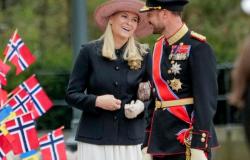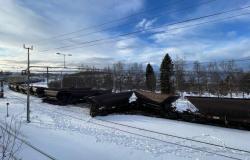April 27 marks 30 years since Nelson Mandela was elected president of South Africa. Where does the country stand now?
Published: 26/04/2024 06:30
This is a chronicle. Any opinions expressed in the text are the responsibility of the writer. If you would like to send an article proposal, you can read how here.
When the fight against apartheid in South Africa was crowned with victory, the joy was great.
The terrible apartheid policy from 1948 meant that the country became the subject of sanctions and boycotts from the international community. The end of the apartheid policy came on 27 April 1994.
Nelson Mandela was elected the country’s first president in a free country where all citizens could participate. He remained in office until 1999. The party he represented, the African National Congress (ANC), received 62 percent of the vote.
Optimism about the future was at its peak, and the job of reducing the differences between the black and white population began.
Unfortunately, it has gone very badly.
Millions under the pillow
In 2014, peace prize winner Desmond Tutu, who was a very important actor in fighting apartheid, stated that he was glad Nelson Mandela did not get to see what today’s leaders are doing to South Africa.
Tutu was glad that most of the liberation heroes were not alive to see what has happened. The country has gained a new black elite who are far from daily life in the poor “townships”, which used to be racially demarcated districts or ghettos and today are considered suburbs.
There has been no economic development to speak of since 2005. It was under Jacob Suma, who ruled the country in 2009-2018, that things really went downhill.
NOK 40 million was found under a sofa cushion with today’s President Cyril Ramaphosa. It is quite symptomatic of what has happened to the country.
South Africa is a country with great natural resources. It has all the prerequisites to be able to provide the people with welfare and prosperity. But the truth is that differences have increased since apartheid.
A country in crisis
The Norwegian Foreign Affairs and Defense Committee visited the country earlier this year. Then it was interesting to hear that ANC representatives blame apartheid – which ended 30 years ago – for the growing differences. The ANC itself has ruled the country with a clear majority since 1994, without the party appearing to take any responsibility for the situation.
The country’s infrastructure is in crisis. Power cuts or “load shedding”, which means several hours without power, are commonplace due to a lack of electricity. The ports lack capacity, which makes it difficult to send out and receive goods. The railway has almost collapsed. Water supply is also becoming a problem in some places. Basic public services are beginning to fail at local level in some places.
Unemployment among young people is approx. 70 per cent and for the entire population approx. 30 percent. No country in Africa spends more money subsidizing the poor, who continue to be poor. 18 out of 60 million people live on social assistance. The lack of electricity and infrastructure inhibits further business development in a country that should be overflowing with “milk and honey”. Many of the resourceful choose to move from South Africa.
And behind all this is a thoroughly corrupt system that is also built on nepotism, where jobs, board positions and other things are awarded to family and friends.
The school system generally does not work, unless you have money and can go to the good schools. We were even told that teachers only met at work occasionally, but they raised their full salary and were happy to have another job on the side. It had no consequences for them, but for their students it is of course the recipe for a future without education and probably a lack of opportunities.
Crime is extreme in many categories, and around 20,000 murders are committed a year.
International friends
On the international stage, South Africa appears to be pulling towards Russia and China. China is important to South Africa economically, and the ANC has close cooperation with the Chinese Communist Party. In July 2023, President Cyril Ramaphosa attended a Russia-Africa summit in St. Petersburg.
It is difficult to understand that the ANC, which many associate with Nelson Mandela, who fought for freedom for the individual and that everyone regardless of background should have their human rights fulfilled, now seems to thrive in the company of Russia and China. Countries where individual rights hardly exist. Where freedom of expression hardly exists and surveillance and suppression of one’s own population is everyday.
South Africa and the ANC are very involved in the Israel-Palestine conflict and filed a case in the International Criminal Court in The Hague.
The bottom has not been reached
I first traveled to Cape Town in South Africa in 2012 because I had family who lived there part of the year. In the years since, I have seen how the country has decayed and conditions have worsened. After having meetings with representatives of the ANC and getting more information about the current situation in the country, I am sure of one thing: the bottom has not been reached.
This country will not recover until the ANC loses power. The party may lose its majority in the election which will be held in May this year, but will manage to retain power with the help of one or more supporting parties which can make matters worse. The ANC will cling to power for a while longer, but there must be a shift.
The running theme is that South Africa is a “victim” after apartheid, and that others, like Western countries, must come and invest and buy their goods. To achieve this on the scale the country needs, South Africa must fight corruption, build infrastructure, build up business and allow this to flourish without government interference at the level it is today. There is no way around it. You don’t solve poverty with aid, you have to have economic growth.






